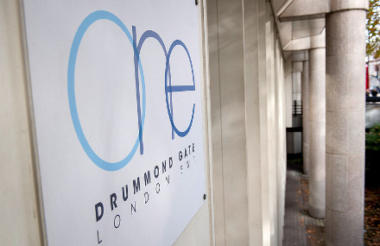An aid charity has shut down, and its board may be banned from future trusteeships, after a scheme to help landlords avoid paying business rates backfired and left the charity owing £800,000.
The regulator opened a statutory inquiry into the Africa Relief Trust in 2013, and published its inquiry report today. In 2015 trustees told the Commission they had closed the charity down.
Africa Relief Trust had been dormant when it entered into an arrangement with a large commercial landlord to occupy properties, under a ‘peppercorn’ rent agreement, meaning the charity would pay a nominal fee, and agree to vacate the premises at 24 hours’ notice. The charity would receive a donation and in exchange the landlord could benefit from business rates relief.
However a number of local authorities challenged whether the charity was entitled to mandatory relief, and won a decision in their favour. As a result Africa Relief Trust end up owing numerous local authorities more than £800,000 in unpaid business rates, although the charity claimed that the company was liable for the costs.
The inquiry found that the charity “continued to take on leases and challenged liability orders only on technical grounds” after the scheme was being challenged in the court.
Charities can claim an 80 per cent discount on business rates, unlike the commercial landlords of empty properties and there have been a number of incidents in recent years where landlords have invited charities to occupy buildings that they have struggled to let. Local authorities are able to grant a 20 per cent discount.
Buildings occupied by charities have to be used for wholly charitable purposes to be eligible for the relief. If it is determined that charities are not occupying the property they can find themselves liable for the full business rates amount.
The Commission concluded that the charity’s trustees had not properly considered the risks.
The inquiry established the person who proposed the scheme to the existing two trustees subsequently became a trustee and managed it. They were also a shareholder in the company
The inquiry report said the chair of trustees had no “previous involvement in the scheme or commercial company” and “nearly 3 years later he still did not understand how the scheme worked”.
‘Backfired on the charity’
The Commission said the case should be a lesson to other charities and warned that incidents like this could “jeopardise public trust in the sector.
Michelle Russell, director of investigations, monitoring and enforcement at the Charity Commission, said: “This case exposed more widely a practice of some retailers and landlords of hard to let properties approaching charities to entice them to enter into tenancy agreements that would relieve the landlords of the requirement to pay full business rates.
“These types of arrangements pose serious risks for charities if the charity is not making sufficient and proper use of the premises. In this case the arrangement backfired. It was the charity that ended up being liable for paying the business rates and had to close.
“It’s a warning for other charities to be wary of similar deals or arrangements. They may sound attractive, but do not enter into them without researching what you are getting into, considering all the risks carefully and taking proper professional advice before you commit. Trustees must be assured in taking on the occupation of a property in such schemes that it is for the charity’s benefit and in its best interests.
“Charities are held in high esteem by the general public, and these kind of agreements that turn sour and look to benefit others, jeopardise that public trust.”









